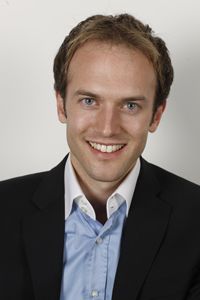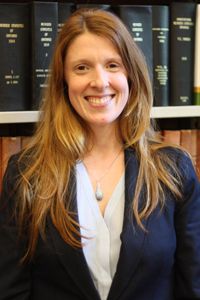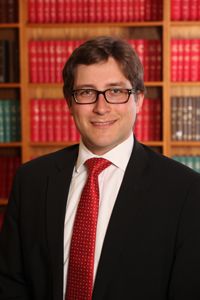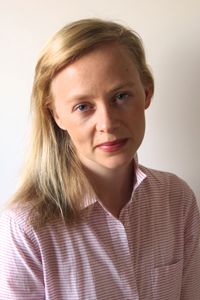



As the Strategic Framework 2014-2019 began to unfold, Queen’s Law appointed four new faculty members. Grégoire Webber, Jean Thomas and Nicolas Lamp joined the school in July and Lisa Kerr will begin her appointment next July.
Grégoire Webber, formerly Associate Professor at the London School of Economics and Political Science, is also a nominee for a Canada Research Chair (CRC) in Public Law and Philosophy of Law. Webber, who holds BCL and LLB degrees from McGill University and a DPhil in Law from Oxford (where he studied as a Trudeau Scholar), previously was a senior policy advisor with the democratic reform unit of Canada’s Privy Council Office and law clerk to, successively, Justice André Rochon of the Quebec Court of Appeal and Justice Ian Binnie of the Supreme Court of Canada. He is co-founder and Executive Director of the Supreme Court Advocacy Institute, which provides free advocacy advice to counsel appearing before the Supreme Court of Canada.
“I am excited to be nominated for the CRC and for the opportunity to pursue my teaching and research at Queen’s,” he says. “I have benefitted from the mentorship and scholarship of Queen's colleagues in law, philosophy, and political studies and am looking forward to establishing opportunities for closer collaboration with them over foundational questions in my field.”
Webber teaches Contracts, and Law and Philosophy.
Jean Thomas, a Max Weber Fellow (European University Institute) and a post-doctoral fellow (Stanford University's McCoy Family Center for Ethics in Society), holds a JD from the University of Toronto and an LLM and JSD from New York University. In her doctoral research, she developed a framework for applying human rights in relations between private parties. Oxford University Press is publishing a revised version of her thesis, Public Rights, Private Relations.
“My research is in legal philosophy, especially rights theory, and tort theory, and in the intersections of ethics and law,” she says. Her current projects include the nature of rights as a general matter, as well as investigations of the nature of tort rights -- human rights more particularly -- and the role of public law rights in private interactions.
Thomas teaches two courses: Torts and Discrimination.
Nicolas Lamp previously was a Dispute Settlement Lawyer at the Appellate Body Secretariat of the World Trade Organization (WTO), advising the Appellate Body members on legal issues arising in appellate proceedings under the WTO's dispute settlement mechanism. The LLM and PhD graduate from the London School of Economics and Political Science wrote his doctoral thesis, "Lawmaking in the Multilateral Trading System," to investigate the origins and implications of the discourses, practices and techniques that shape international lawmaking in the trade context.
His research interests encompass several fields of public international law, as well as legal theory. He won the American Society of International Law's 2012 Francis Lieber Prize for outstanding scholarship in the law of armed conflict.
“Queen’s Law is a very exciting environment right now because it is expanding, which brings new opportunities,” he says. “Its strength in public international law generally and international trade law (which I know from participation in the ELSA Moot Court competition in WTO law and regular study visits to Geneva) made Queen’s particularly attractive to me.”
Lamp, who is “thrilled to be in academia,” teaches Contracts and International Economic Law.
Lisa Kerr is completing her JSD degree at New York University (NYU), where she earned her LLM and is now a Trudeau Scholar and an SSHRC Doctoral Fellow. After graduating from the University of British Columbia (LLB), she clerked at the province’s Court of Appeal before becoming an associate with the Vancouver office of Fasken Martineau DuMoulin. More recently, she served as staff lawyer at Prisoners’ Legal Services in Abbotsford, pursuing strategic litigation on human rights issues in federal and provincial prisons. She is also a longstanding volunteer with Pivot Legal Society and works on strategic law reform including campaigns aimed at the decriminalization of sex work in Canada and the abolition of unconstitutional forms of solitary confinement that are used in Canadian prisons.
In her doctoral research, Kerr draws upon constitutional law, sentencing, and the philosophy and sociology of punishment for comparative studies of the ways legal systems regulate prisons. "The central concern in my work is the relationship between law and punishment,” she says, “and I look forward to learning from the extraordinary expertise at Queen's in the fields of criminal and constitutional law as well as legal theory.”
Kerr sums up the faculty complement she’ll be joining: “Queen’s Law includes some of Canada's most accomplished and influential legal thinkers, and yet it also brims with new talent."